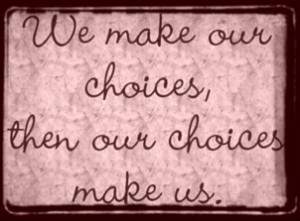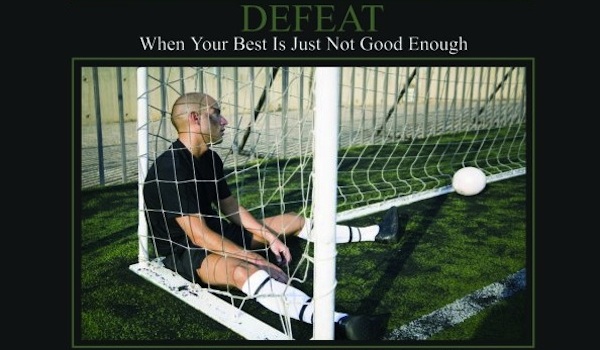 Are we creatures of habit or blessed with free will? I believe the former. Each of us makes thousands of decisions, but the vast majority of them aren’t really choices. Does this mean there is no free will? No, but making a real choice requires understanding some complicated concepts.
Are we creatures of habit or blessed with free will? I believe the former. Each of us makes thousands of decisions, but the vast majority of them aren’t really choices. Does this mean there is no free will? No, but making a real choice requires understanding some complicated concepts.
For my entire life, I have answered yes when asked whether I want fries with that. Each time I decided to have fries, I drew on the data I had stored over the years. I love fries, past experience has told me that they will make me happy, and I know that fries now and again are not going to cause me to pack on the pounds.
Then the rules changed. My metabolism slowed to a pace that can no longer tolerate them without my gaining weight. But can I choose to answer the question differently?
Where do decisions come from?
There is comfort in the concept that we can choose to do anything we want. It’s what many believe makes us uniquely human. But the evidence shows that we rarely choose anything outside the range of what we decided a long time ago.
We know how the toilet paper comes off the roll (one of my favorites). We know to finish our plates while we ponder the starving [insert nationality here]. We know all the rules of life imparted by our mentors (parents, teachers, older siblings) and implanted so we could live a safe and comfortable life not having to make choices.
Certainly many rules serve us well, like the rules we learned about driving. But if you rent a car in England or on this site https://www.cretanbaytransfer.com, you must either live by your embedded set of rules or choose to acknowledge a different set of rules about driving. You can also find out more here for the best car rental services.
Types of rules
We have sets of rules, like those about driving, that relate to skills. Other sets of rules are attitudes. Many first-borns, for example, learn early in life, when their sibling arrives on the scene, to be possessive and dominant, while second-borns learn passivity. Both groups make decisions about how life works with the available data, and these rules serve them well. But later in life, when the environment changes and the people they want to have good relationships with are different (the data changes), most will execute the way they learned when they were young and wonder why the other guy is put off. Must be something wrong with him.
We also have rules that are opinions. In any given situation, you carry an automatically executed set of rules about:
- Right and wrong
- Pretty and ugly
- Visual, audible, and tactile
- Good and bad
- Isolation and intimacy
- Finishing your dinner and eating healthy food
- Toilet seat up and toilet seat down
- Neat and orderly and laissez-faire
- Peace and conflict
- Big government and libertarianism
- Life and choice
- God and not God
- Your God and others’ God
- Oh yeah…toilet paper over the top or off the bottom
You use these rules as foundations for your daily life. They just are. For the most part they are never questioned, so no choices are required.
Changing the rules
You have all these rules about life that you developed based on early data. What happens when you find yourself in the England of life—you marry, start a new job, or join a new group?
Other people didn’t have your parents, siblings, teachers, communities, churches, or much of anything else that would make their skills, attitudes, and opinions match yours. They don’t know your rules, and the data for making decisions has changed. It’s time to drive on the other side of the road. But how?
First, we have to be aware that the external data requires different rules. Example: Three days in a row you get into an argument with your boss about how to do something. You’re the first-born. You know you’re right and it’s your duty to win the argument. But you’re not dealing with your sibling. The data has changed
Another example: You have rules about Muslims, and you don’t know anyone who is Muslim, so there’s no reason to change your beliefs. Suddenly, your daughter is dating a Muslim man and bringing him home for dinner.
Here’s where you have a choice. You will decide either to rewrite your rule set, or do/react the way you always would. Which serves you best?
We benefit from being constantly aware that our rules organize and run our lives in a mostly effective and efficient manner. We must also be present and aware when the data changes.
Do you want fries with that? With a new metabolic rate, the data changed. I choose to answer differently than I did in the past and have almost eliminated French fries from my diet.
If you want to improve some relationships, or just make different choices, tackle some of the dichotomies in the list above. This is not easy stuff, but it’s more than worth it.


